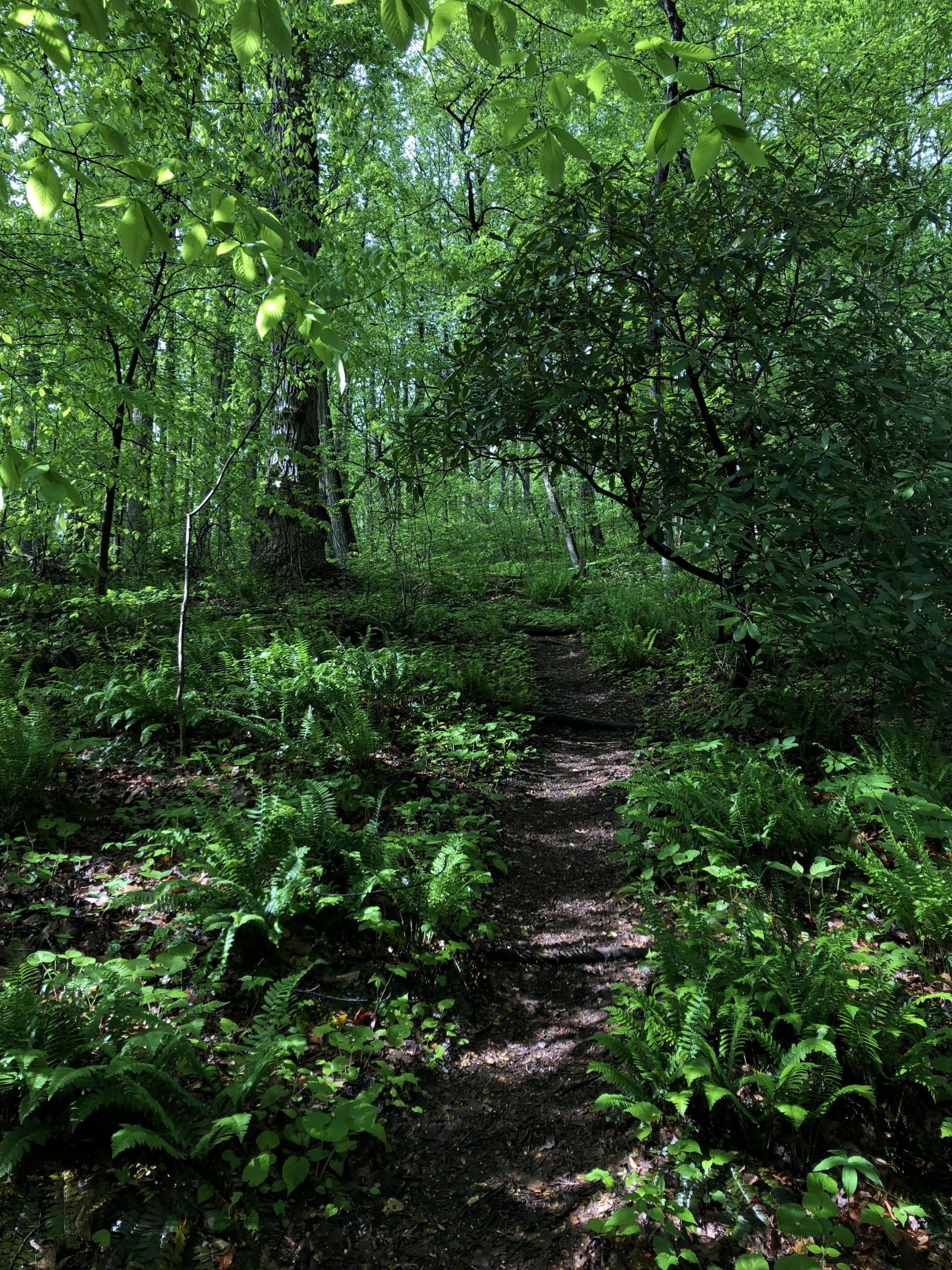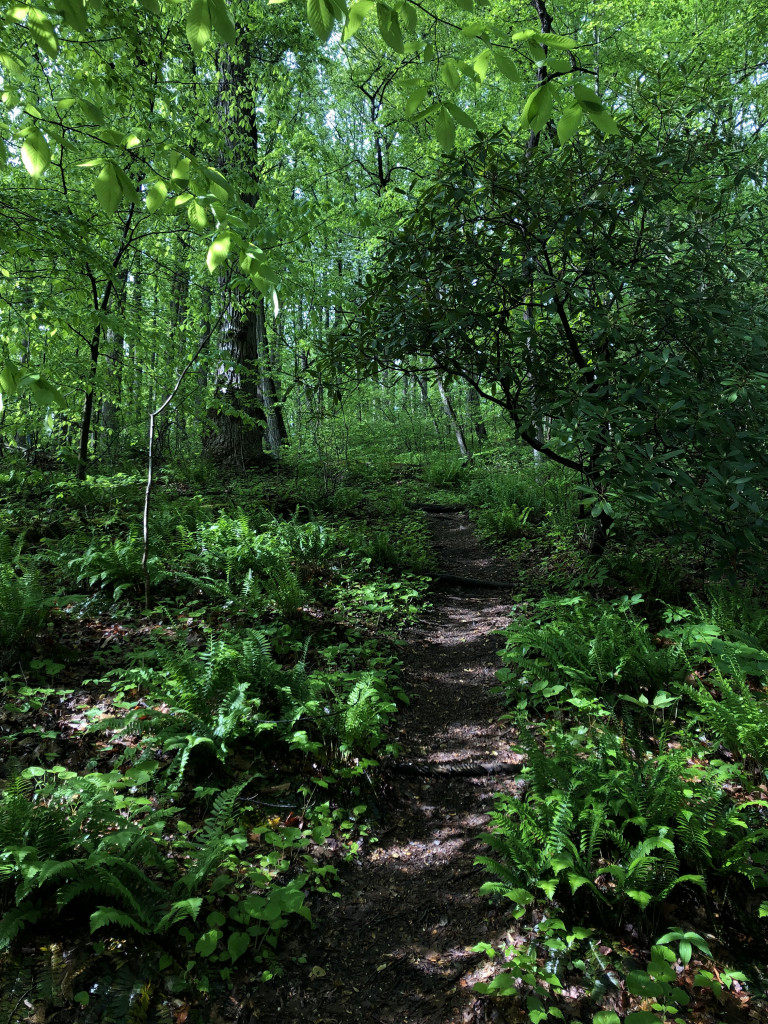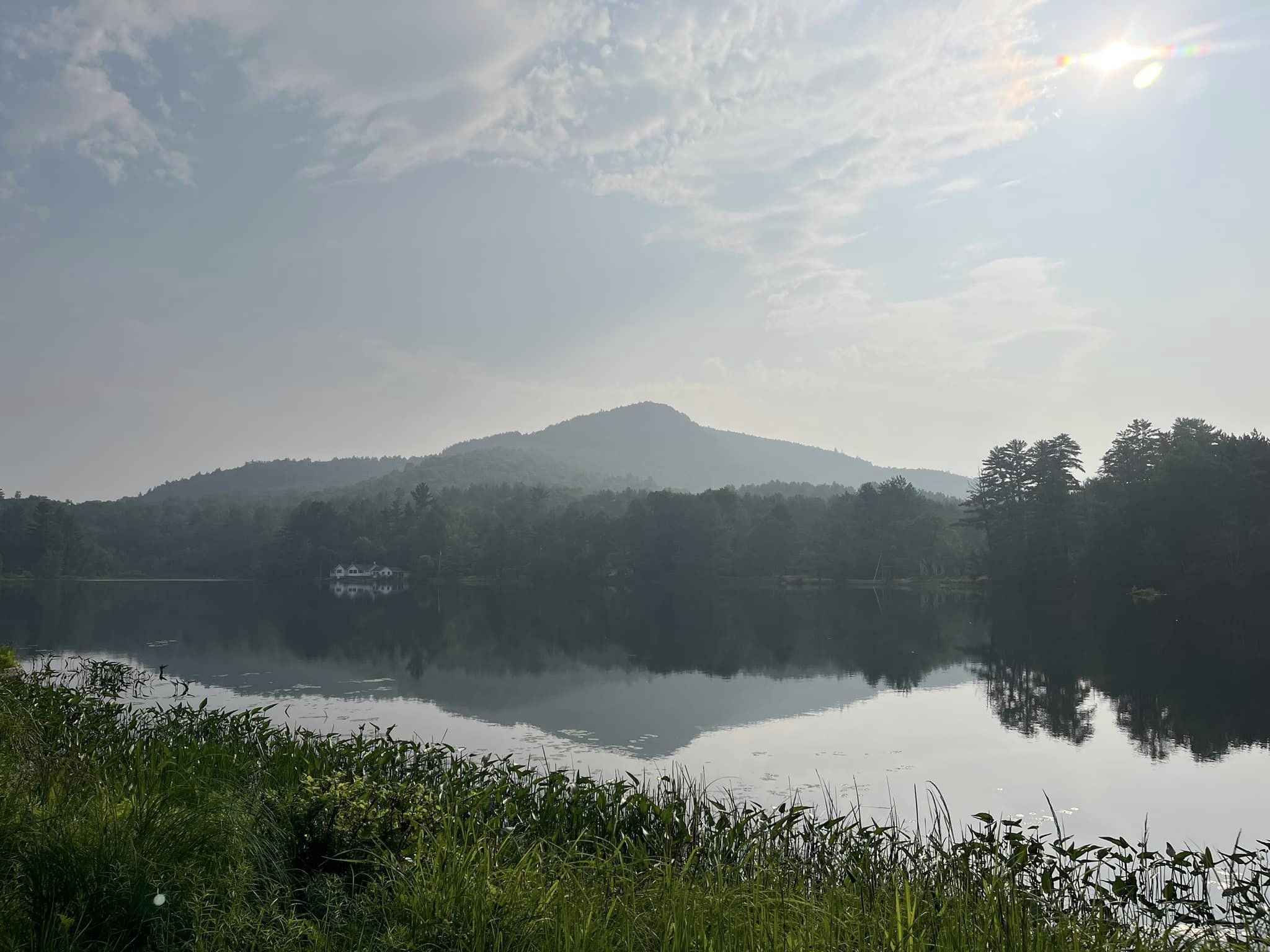An Ode to Hills
Odds are you’ve heard of Sisyphus, the mythological Greek figure who was sentenced by the god Zeus to push a massive boulder up a hill, time and time again, only for it to roll back down to the bottom whenever it neared the top. Now, from what I’ve read, Zeus was a crankpot who loved to sentence people to torturous fates for all eternity if they accidentally bought him two left socks or made chamomile tea when he’d explicitly requested Earl Grey, but he apparently had rare streaks of genius, this being one of them. You see, his twisted, sadistic tendencies led him to invent a workout that would be the bane of runners far and wide–and especially trail runners–for millennia to come. I’m talking, of course, about hill repeats.
Recently, the topic of hills has come up more than usual in conversations with my running friends, perhaps because the coming of summer, with its heat and bugs and humidity, only serves to accentuate their brutality. But the desperate avoidance of hills at all costs is a trope that has stood the test of time, to the point where many will over exaggerate or lean in to their hatred of the things purely for the fun of it. Suffering incurred from hills gives rise to a “love to hate them” mentality that binds runners together, like gossiping at the water cooler about that one coworker who always uses speakerphone. And while the demonization of hills is often just for laughs, the end result is a lack of recognition for the special dimension which they bring to the experience of any run, be it a casual Sunday jaunt or a targeted, intense effort. Once your forefoot strikes the slant of the incline, all bets are off; as that incline grows sharper and sharper, the hill becomes your teacher, showing you personal truths both mental and physical. And just like any good teacher, sometimes it will tell you things you don’t want to hear, but somewhere down the line–a week, a month, a year–you’ll be better for it.
I’m a naturally anxious person, so I like to get obligations and challenges out of the way as early and as quickly as possible so that they don’t continue to loom over me. Sangria tastes way better after having mowed the lawn than before, right? At least, that’s the mentality that I brought to Mockingbird Hill Road when I was first beginning to incorporate some up-down into my running routine rather than just forward-backward. It’s a grueling stretch of road near my old house that winds up the mountainside for over 300 feet of cumulative gain in just over half a mile. Gnarly stuff.
Here’s what Mockingbird taught me on a bright day right after returning from vacation: pace yourself. I charged up that hill like a bull freed from its pen, mad eyes and panting breath, with my only goal being to put it behind me pronto. About halfway up, I felt more like an inert turtle than a bull, and my lungs were burnt and raw; Zeus had scored a direct hit with his lightning bolt. Of course I hated it. The next time, I recalibrated. I started slower than I thought I needed to, focused on my posture, quickened my step and shortened my stride. I used effort rather than flat speed as my metric, pushing my aerobic capacity so that it was difficult and uncomfortable, but sustainable. By being more intuitive in my approach, I even stored up enough energy for a dramatic burst in the final stretch. I ended up spent, but this time the view was from the top of Mockingbird rather than halfway. Satisfaction, rather than dread for the distance to come, was my reward.
As human beings, we tend to draw heavily on personal experience, which leads to the formation of powerful associations based on tenuous evidence–as Jason Koop would say, an “N of 1” sample size. Once formulated, these associations are notoriously difficult to break. Just ask my therapist. But hills teach us that by swiping angrily at our challenges–athletic, personal, and otherwise–as though they are flies to be cleared away, what we are actually doing is reinforcing negative associations and adding to our frustration. If you instead focus on nailing your pacing and not demanding any more of yourself than that which you are capable of giving in that moment, you become unshackled from expectation, worry, and past experiences…yes, even the trauma of hills. Suddenly, the object of your fear and procrastination transforms into something exciting and adventurous; it’s no longer a threat to expose your inadequacies, but an opportunity to explore and find new strengths.
This might sound a little hippy-dippy or new age, like something from a New York Times pop-psychology best seller where the author on the dust jacket is propping their chin up on their knuckles and staring into your soul. But in resisting the urge to rush through things that are deemed unpleasant, you might be surprised at how much more tolerable they become. And who knows? If you’re a special kind of psycho, you may even find that, against all odds, you enjoy the struggle. If you do, I’d like to personally welcome you to the Crazy Hill Club. The stale Clif bars are on me.
~Vincent Behe
Add Comment
You must be logged in to post a comment.








